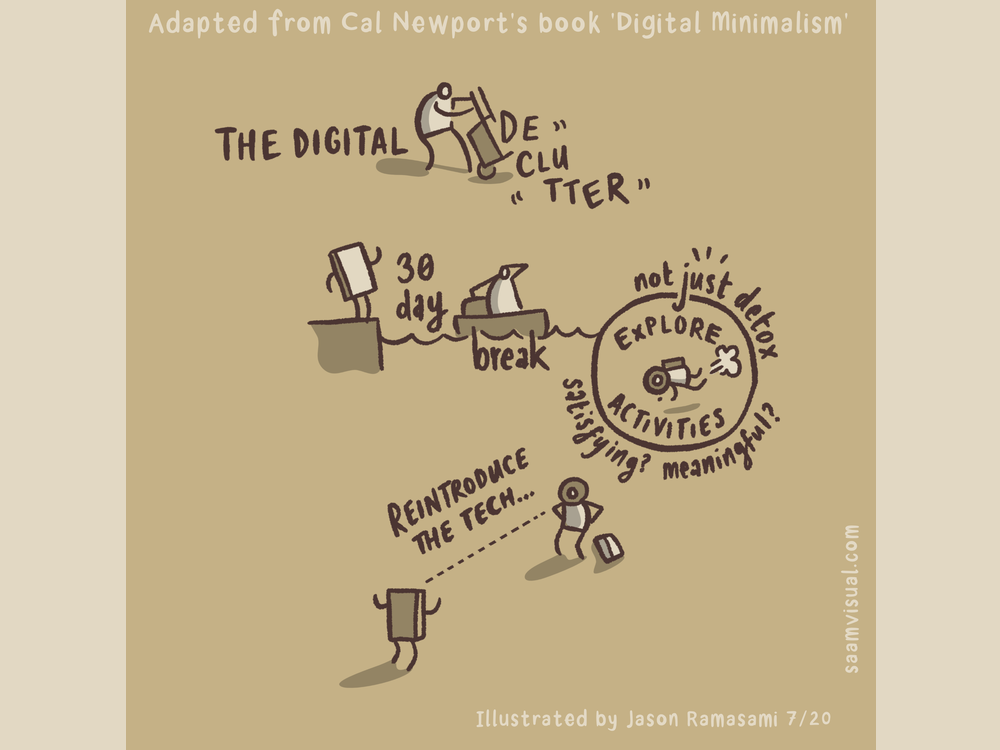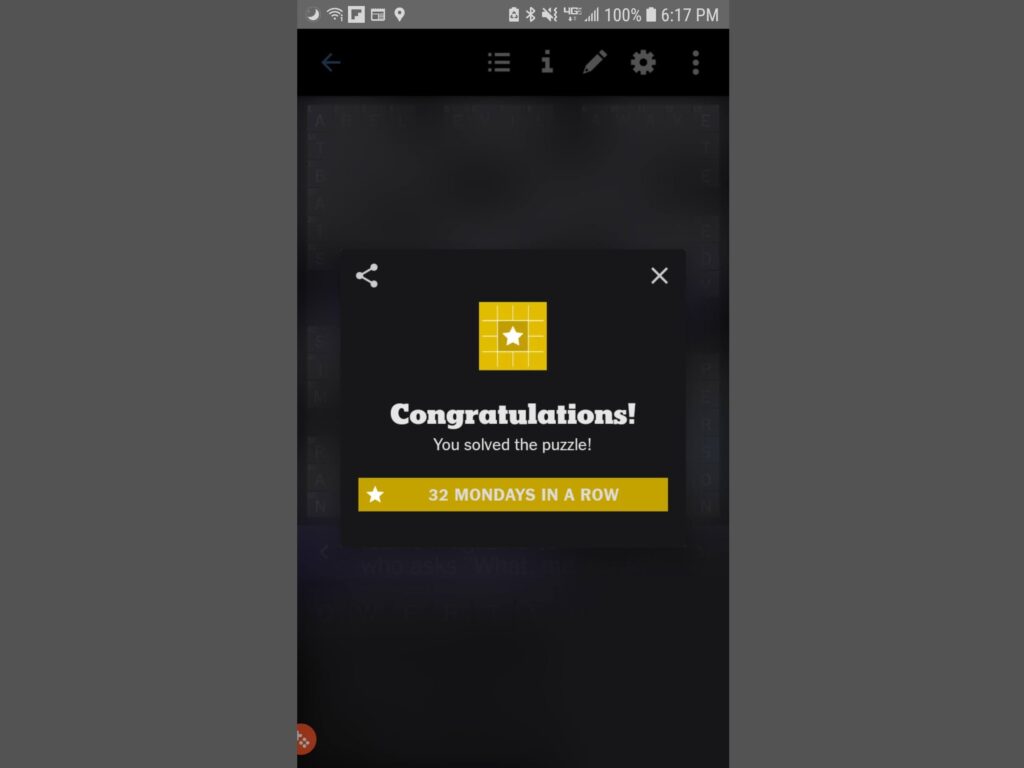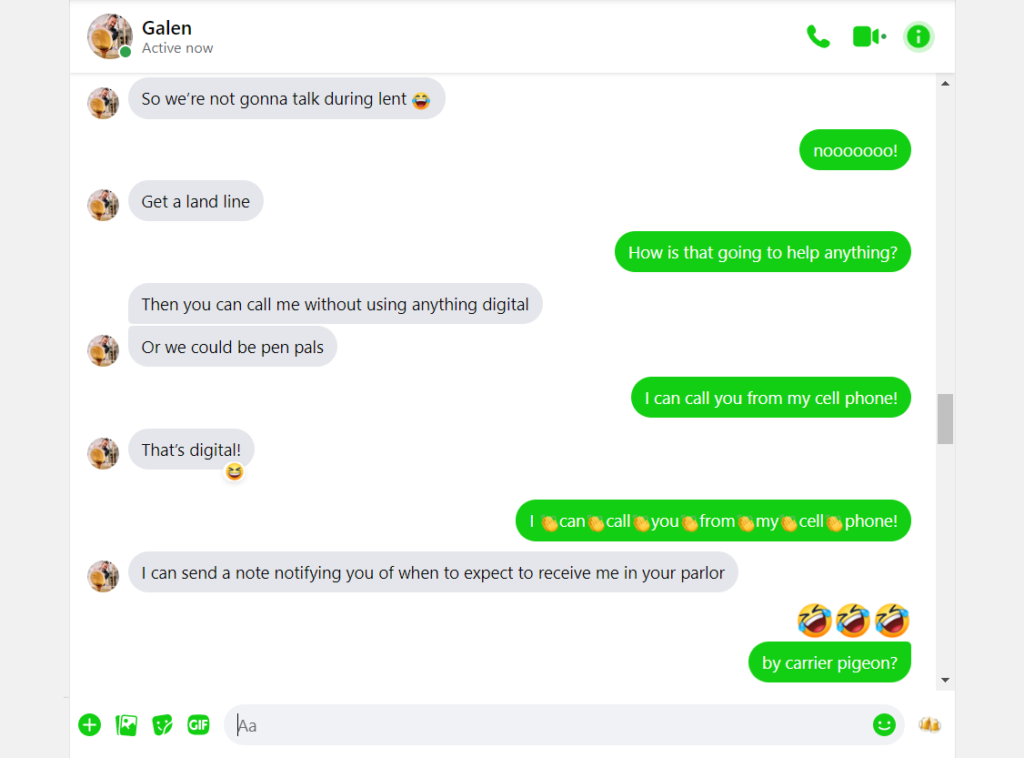Ground Rules
I have explained before on this blog that while I don’t consider myself to be a practicing Christian (aside from actually trying to follow the teachings of Christ), I do find value in the annual tradition of eliminating something of value for a period of time to practice self-discipline and help shift my perspective about what I “need” vs. “want.” To that end, I have recounted my Lenten adventures (if that’s the right word) on this blog in years past, specifically Zero Waste Lent in 2019 [1] and Tidying Up in 2021,[2] and I usually find that what initially seems to be a sacrifice does ultimately benefit me in the end anyway.
Last fall I wrote about a book called Digital Minimalism by Cal Newport [3] in the context of my overwhelming desire to try a digital detox… and my even more overwhelming desire not to. I am aware of the addicting yet mind-numbing effect of bespoke social media feeds curated by AI algorithms to keep my eyes locked on the screen.[4] I am also aware of my intense dopamine addiction that makes me wait in anticipation of reactions to posts or even check back frequently in case I missed a notification. Although I knew I needed a detox, I started to dread what that would look like in practice once I began considering the actual steps necessary.
Clean Slate
While there are several versions of digital detoxes out there, Cal Newport’s is surprisingly similar to the Marie Kondo method of assessing our relationship with things – not only because the process involves removing everything and then putting back what you want, but that, more broadly, you are empowered to determine the parameters of the process yourself. No one knows your daily life better than you do, so ultimately you are the best authority on what you really need and what you don’t.

Image credit: [5]
Cal’s Digital Declutter consists of removing websites, apps, etc. that are not necessary for work and don’t “play a vital role in your daily routine.”[6] The specifics are going to look different for every individual, and Cal understands (as does Marie) that dictating how you should do things will not lead you toward valuable self discovery. At this late point in the game, I would honestly prefer some proscriptive guidelines for this challenge but recognize that if it’s going to be successful, it’s going to have to begin with some honest self evaluation.
Like most Americans, my phone is basically an extension of my body. In the course of a normal day, I use my phone to check email and message friends, to see what those friends are doing on Facebook, to play games and learn languages, to watch videos and listen to music. I use my phone as an alarm clock, cooking timer, cookbook, calculator, camera, photo album, encyclopedia, map, notepad, newspaper, and even – at least where my parents are concerned – a phone!
I know that Facebook and Facebook Messenger are the biggest mindless time sinks in my daily routine, though there are other things that pull me in on their own, such as YouTube, the New York Times Crossword, and Duolingo. In some ways, I almost feel like the latter ones often serve as structured procrastination for when I’m looking to avoid something. (Case in point: I now really want to head over to the Times Crossword instead of setting up the parameters of my digital detox.)
Mindful Use
As Cal Newport points out, there may be some aspects of digital connectivity that are useful or necessary for your life, such as coordinating with a volunteer group through Facebook or staying up to date on relevant news stories. The intended shift described in this process is to use these tools as tools, specifically in a constructive, beneficial way, not to fall victim to their addictive power through reactive use whenever a notification pops up. An example of how to support this shift is setting a schedule for when and how you will use a given technology, such as reading through news digests on Saturday morning at a coffee shop, rather than picking up your phone every time it dings with a breaking story.

After reading Digital Minimalism last fall, I knew I wasn’t emotionally ready for a full-scale declutter, but I also knew there were important steps I could take in the meantime, such as charging my phone downstairs overnight. I haven’t had the Facebook app on my phone since we watched “The Social Dilemma” [7] and “The Great Hack” [8] in 2020, but I still used it in my phone’s internet browser – in fact, it’s about the only thing I use my phone’s browser for, so the Chrome icon has become my proxy Facebook icon. At least I don’t get Facebook notifications on my phone, but I made sure to turn off my other notifications as well – even the ones reminding me that my Duolingo streak was in jeopardy.
It was actually our trip to Italy last fall that broke my Duolingo streak, as well as my NYT Crossword streak. I was shocked at how two things that were originally so much fun for me had slowly become daily obligations, daily time sinks. And while 30 minutes of Italian a day for 3 months on Duolingo was incredibly beneficial when we landed in Rome, there were definitely other things I could have been doing with that time. The same could be said for far less productive activities that masquerade as enriching, such as brain games or educational YouTube videos. Even when I get to the end of a long day at work and want to spend the evening relaxing, I don’t feel better after several hours of “one more episode” or “one more video,” and that is part of Newport’s point: mindless activity is not actually refreshing for us.
The Plan
I have put off setting actual ground rules for myself until the last minute – procrastinating by trying to better understand the guidelines and understand my own habits. While I do have some starting points in mind, which I will list below, I’m starting to get the feeling that my approach may have to be more fluid and involve checking in with myself on how I feel and how I’m using (or being used by) various technology at my disposal.
First, nothing will change with regard to work. I have to be reachable during business hours, and that can be by phone, email, or instant message. But I’ve also been working to instill the idea in my team that once you’re done for the day, you shouldn’t be thinking about work, checking emails, getting message notifications, etc. I have learned the hard way that I need to follow that guidance too or people on my team will feel obligated to follow my bad example.

Outside of work, I will primarily be targeting Facebook and YouTube, which make up the vast majority of my unproductive technology use. I’ve already put up a notice on my Facebook account to say that I’ll be offline for Lent and that friends who want to stay in touch should reach me by phone (call) or email. I do not intend to use Facebook for non-work purposes, and that includes Messenger (which has always escaped my Facebook fasts in the past), though I might log on to post links to this blog series as I go. I will remain flexible on Facebook use in case there is an event I want to attend or long-distance friend I want to see virtually. My metric will be the extent to which I am using it for a beneficial, intentional purpose.
Similarly, I regularly dive into the rabbit hole of YouTube videos in the evening, particularly if I’m trying to avoid doing something responsible. I will often justify that activity by watching something educational, such as video essays on film criticism, historical costuming, or linguistics… but I will frequently let the next suggested video play, and suddenly my evening is gone. During Lent, I will allow myself to watch a YouTube video for the purposes of research for this blog, for cooking techniques when trying a new recipe, or if Christian has something he wants to show me, but I will not be watching a string of them mindlessly.
The same goes for watching TV shows on streaming services: one episode at a time, whether it’s by myself or with Christian – and if I’m going to watch something, I will sit and watch it, not have it on in the background while I’m doing chores. I do not intend to play brain games, but if I really get an itch, I have a Sudoku book (yes, a physical, paper book), which predates my owning a smartphone. I would like to get more news than I do at the moment, having limited my intake for mental health reasons almost a year ago, so I may set aside some specific time for reading weekly digests, but my news apps are going away. As for instant messaging, I do worry that I will feel more isolated without that level of constant connection to friends, but I am curious to explore quality over quantity interaction with people I care about in the coming weeks.
~
And here I go. I will be recounting my experiences on the blog (but not looking at readership statistics) during Lent. If you have questions, suggestions, or want to join along yourself, please let me know in the comments! (I’ll need all the help I can get!)
Thanks for reading!
[1] https://radicalmoderate.online/zero-waste-lent-ground-rules/
[2] https://radicalmoderate.online/tidying-up-week-1/
[3] https://radicalmoderate.online/digital-minimalism/
[4] https://radicalmoderate.online/november-2020-elections-part-2/
[5] https://saamvisual.com/process/2020/7/21/calnewport-digitalminimalism
[7] https://www.imdb.com/title/tt11464826/
[8] https://www.imdb.com/title/tt4736550/
2 Comments
Galen · February 19, 2023 at 4:27 pm
I’m hoping to do a lighter/similar version of this for Lent (as a practicing Catholic) where I give up social media and perhaps phone games. I’ve done it in the past, but I haven’t been good about intentionally filling the void with something useful/beneficial/life-giving/prayerful. Perhaps that’s the real challenge this time around.
Alison · February 19, 2023 at 5:16 pm
I wish you the best of luck. It would be great to talk about our experiences over a beer – send a carrier pigeon my way and let me know if you want to get together 😉